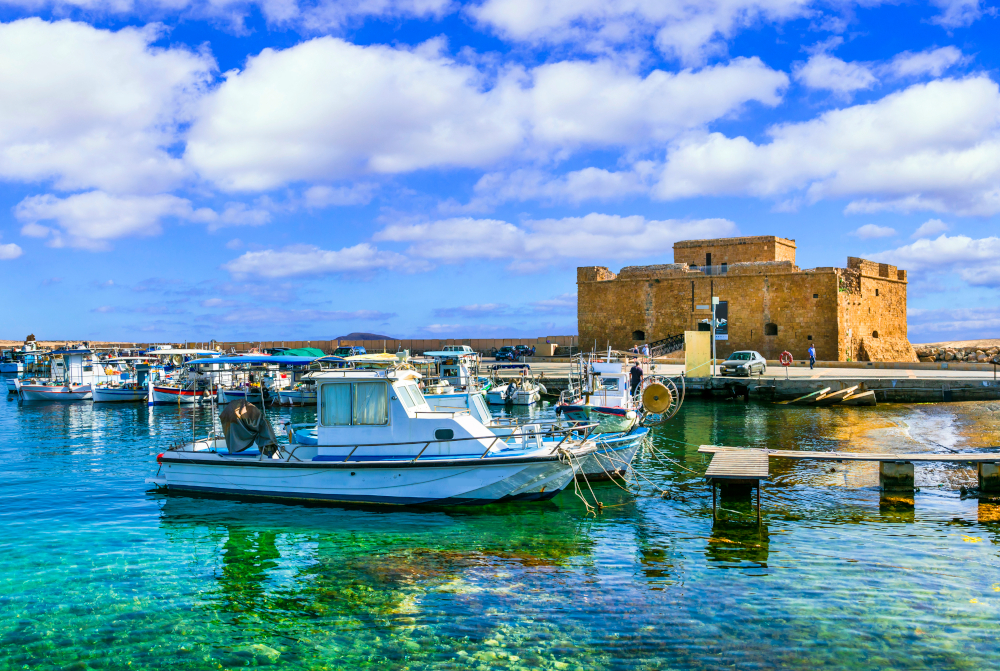Located in the heart of the Mediterranean, between the north of Africa and southern Europe, Malta is a modern international commercial hub with a global draw.
Malta boasts a diverse economy with well-developed Financial Services, Fintech, Science and Technology, eGaming, Maritime Services and Aviation sectors. Additionally, the island offers extensive Residency routes available, Schengen area status, fantastic travel links and potentially beneficial tax regime. For these reasons and many more, Malta is a destination of choice for wealthy families, entrepreneurs and businesses around the world.
Malta offers people relocating to her shores a very attractive Non-Domicile regime that provides individuals with a great deal of flexibility when it comes to structuring their financial matters – this is precisely where the Isle of Man can offer clients a platform for optimising their wealth.
In this article we take a brief look at how Dixcart can assist with moving to Malta and how those individuals can utilise the Isle of Man to protect and grow generational wealth, covering:
- How to Become a Maltese Tax Resident?
- What are the Tax Rules of the Maltese Non-Domicile regime?
- How Maltese Non-Domicile Individuals Utilise the Isle of Man for Wealth Planning?
- How Dixcart can Support your Move to Malta & Wealth Planning Goals
1. How to Become a Maltese Tax Resident?
There are two distinct groups of people when we consider the method of becoming Malta Tax Resident – these are 1) EU / EEA / Swiss Nationals, and 2) Third Country Nationals. Importantly, for the purposes of this article, where either type of individual does not intend to remain in Malta permanently and has no substantial connection to Malta, both groups may be deemed a Tax Resident Non-Domiciled individual. There are also compelling Residency options available to each group which offer the same benefits and broadly have the same requirements.
Malta is a member of the European Union (EU) and European Economic Area (EEA). As such, EU / EEA Nationals can live, work and study in Malta indefinitely without a Visa or Work Permit. Swiss Nationals also enjoy this right. These individuals can apply for the Residence Programme via an Authorised Registered Mandatory, such as Dixcart Malta. The Residence Programme offers a special tax status to successful applicants who meet the requirements.
Third Country Nationals will be required to take part in a programme such as the Global Residence Programme or successful applicants also gain a special tax status and are granted a residence permit which also extends to their dependents, including spouses and children. The special tax status received under either programme entitles the individual to a beneficial flat rate of 15% on foreign source income remitted to Malta, with the possibility of claiming double taxation relief where an appropriate Double Tax Treaty is in place. Income that arises in Malta is taxed at a flat rate of 35%. The beneficial rate is subject to a minimum yearly tax contribution of €15,000.
The Malta Residency Programme and Global Residence Programme requirements include:
- Applicants must pay a one-time non-refundable registration fee of €6,000 to the Maltese Government. This is reduced to €5,500 where the Qualifying Property Holding is purchased in Gozo or the South of Malta.
- Not have benefitted from a number of previous or existing Malta regimes.
- Evidence of a Lease Agreement and Rental Declaration, or Purchase Agreement relevant to a Qualifying Property Holding. A Qualifying Property Holding requires a minimum investment in a Maltese property of €275,000, or €220,000 if the property is in Gozo or the South of the island. In the instance of a Rental Agreement, rent must cost not less than €9,600 per annum, or €8,750 if the property is in Gozo or the South of the island. The property cannot be let or sub-let.
- Evidence of self-sufficient means of subsistence (e.g. bank statements, pension, secure bonds, etc).
- Posses a valid travel document.
- Evidence of comprehensive health insurance OR Certificate of Entitlement issued by the Entitlement Unit. Must provide cover within the EU for the applicant and all dependents.
- Be proficient in one of Malta’s official languages (English is an official language of Malta).
- Applicants and dependents over 18 years of age must satisfy the fit and proper person requirements.
- Submit an Annual Return – with any material changes that affect the beneficiary’s special tax status.
- Not spend more than 183 days in any other jurisdiction, in any single calendar year.
2. What are the Tax Rules of the Maltese Non-Domicile regime?
Liability to Maltese Income Tax arises in three forms, dependent on the Tax Residency and Domicile status of the individual – these are on a Worldwide, Remittance or Territorial basis.
Ordinary Residents of Malta who are Tax Resident and Domiciled are taxed on their worldwide assets; meaning that all Income and Capital Gains are subject to Maltese taxation regardless of where they arise or are received. This also applies to persons who hold the status of Long-term Resident or are in possession of a Permanent Residence Certificate or a Permanent Residence Card.
Maltese Ordinary Residency status is determined by a question of fact, relating to the length of stay along with personal and economic ties. Factors which the authorities will consider, include:
- Permanent or Indefinite Basis: Individuals living in Malta permanently or for an indefinite period are typically considered ordinarily resident.
- 183 Day Requirement: If an individual stays in Malta for more than 183 days in a single year they may be deemed Ordinary Resident.
- Regularity of Stays: Persons who do not meet the 183-day requirement, but who regularly visit over a long period of time e.g. over 3 years, can also be considered Ordinarily Resident.
- Personal and Economic Ties: Establishing personal and economic ties in Malta is a significant factor in determining Ordinary Residency e.g. purchasing a family home etc.
The Maltese authorities do not define Domicile by nationality, but where the individual considers their permanent Home i.e. where the person ‘belongs’, which implies more significant ties than Residency alone. This can be the individuals Domicile of Origin i.e. normally the Domicile of their parents, regardless of the country where the individual is born. An individual may acquire a Domicile of Choice if they take up Residence in a country with the intention of making it their permanent home. However, they do not acquire Domicile status if they intend to return to their country of Domicile or resettle in another someday, even where the period is long or indefinite. No person can be without a Domicile, and no person can have more than one Domicile at the same time.
A person that is an Ordinary Resident but not Domiciled in Malta is taxed under the Remittance Basis, and therefore:
- All income arising in Malta is subject to tax, regardless of where it is received.
- Income arising outside Malta is subject to Maltese tax only if and to the extent that it is received in Malta.
- Capital gains arising outside Malta are not subject to tax, even if they are received in Malta.
Individuals taxed under the Remittance Basis are subject to the special rule providing for a minimum tax liability of €5,000 per annum (this minimum tax is different to the Global and Residence program which is 15%).
Unlike many equivalent Non-Domicile regimes, an individual can remain Non-Domiciled in Malta indefinitely.
This means that where the Tax Resident Non-Domiciled individual can show that monies received in Malta originate from assets held abroad as capital e.g. inheritance, proceeds from the sale of capital assets etc. they will be regarded as remittances of capital and will not suffer Maltese tax.
Dixcart Malta are equipped to provide Tax Advice regarding Maltese taxation and the Maltese Non-Domicile regime. If you would like to discuss how the regime works and any opportunities relevant to your circumstances, please get in touch with Jonathan Vassallo at Dixcart Malta.
3. How Maltese Non-Domicile Individuals Utilise the Isle of Man for Wealth Planning?
The Isle of Man is globally recognised as an international financial centre of excellence, boasting a sophisticated legal and regulatory system, a developed professional services industry and a long running heritage in Private Client and Corporate planning.
The Isle of Man was named ‘Best International Financial Centre’ at the prestigious International Investment Awards 2023, beating off stiff competition from Jersey and Guernsey.
The island is a self-governing Crown Dependency which makes its own laws. The Statute book and Case Law is modern and business friendly yet enduring, with a wide array of corporate entities and Trusts available. The jurisdiction is also politically agnostic and therefore clients can take comfort from the stability and reliability offered.
The island also sets its own tax regime and offers headline rates which include:
- 0% Corporate Tax
- 0% Capital Gains Tax
- 0% Inheritance Tax
- 0% Withholding Tax on Dividends
- Isle of Man companies are able to register for VAT, and businesses in the Isle of Man fall under the UK’s VAT regime.
Owing to the attractive neutral tax regime, Non-Domiciled individuals seeking to live and work in Malta can potentially structure their non-Maltese assets in such a way that facilitates optimal growth via a potential nil rate in the Isle of Man, remitting withdrawals of capital to Malta free from Maltese taxation. Jonathan Vassallo at Dixcart Malta can provide certainty regarding the Maltese tax treatment of your potential Isle of Man structuring in this regard.
Taxation is a complex area and professional Tax Advice should always be sought before establishing any offshore structure.
4. How Dixcart can Support your Move to Malta & Wealth Planning Goals
After more than 50 years, the Dixcart Group remains proudly privately owned by the same family. the Group consists of 7 offices across the globe, including both Malta and the Isle of Man. Dixcart are very well positioned to assist clients and their advisers who are considering moving to Malta and seeking to structure their non-Maltese assets, or participation within a Maltese business, in a tax efficient manner via an Isle of Man structure.
Dixcart Malta are experts in all Residency routes available and are Licensed to act as Authorised Registered Mandatory for clients. Further, Dixcart Malta can provide Tax Advice for those looking to take advantage of the very beneficial Non-Domicile regime within Malta.
Dixcart Isle of Man are a Licensed and Regulated Trust and Corporate Services Provider that has developed an extensive range of services over its 30+ years of operation. Our team on the Isle of Man consists of professionally qualified experts and senior employees who possess a wealth of experience. This means that our Isle of Man office can support your corporate and/or Trust planning, at every stage.
Get in Touch
If you would like to discuss how our Dixcart can support your plans regarding Malta and the Isle of Man, please feel free to get in touch with Jonathan Vassallo of Dixcart Malta or Paul Harvey of Dixcart Isle of Man via:
Dixcart Malta: advice.malta@dixcart.com
Alternatively, you can connect with Jonathan Vassallo on Linkedin.
Dixcart Isle of Man: advice.iom@dixcart.com
Alternatively, you can connect with Paul Harvey on LinkedIn.
Dixcart Management (IOM) Limited is Licensed by the Isle of Man Financial Services Authority
Dixcart Management Malta Limited Licence Number: AKM-DIXC-23











